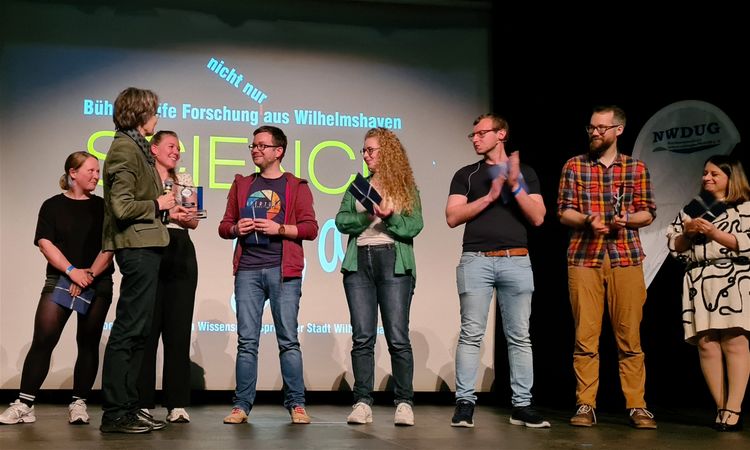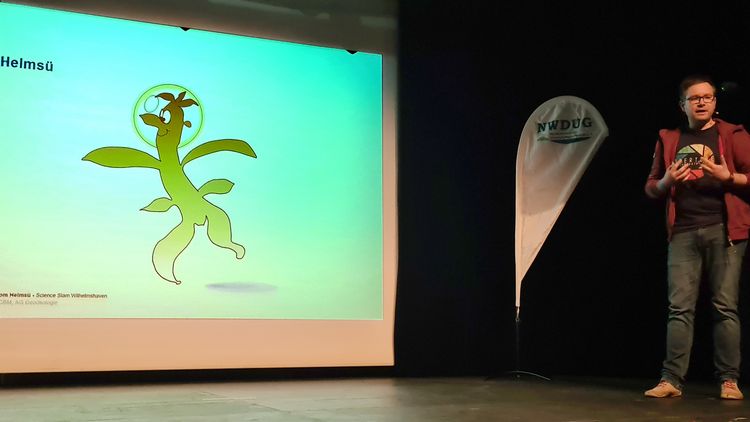Landscape ecologist Dr Markus Prinz is the winner of the latest Wilhelmshaven Science Slam, which took place yesterday at the Pumpwerk cultural centre. Prinz, a member of the Geoecology working group headed by PD Dr Holger Freund at the ICBM, explained to the audience in a ten-minute presentation that was as humorous as it was confident, that he is working on aliens. And one of them is the "Helmsü". He first introduced it to the audience as a greenish creature with several appendages.
Unusual, humorous - that's how the slam contributions should be, but also inform the audience in an understandable way about the scientific work of the speakers. And so Prinz finally explained to the audience in the packed Pumpwerk that he was talking about the subject of his dissertation, the New Zealand Pygmyweed. This is an invasive, alien species with the potential to adversely affect entire ecosystems despite its fragility. Prinz was able to prove this with impressive photos from Norderney and Wangerooge, where the species is spreading massively. The scientific name of the herb with its enormous vigour is Crassula helmsii. In the course of the correspondence surrounding his doctorate, there were apparently people who thought that two consecutive "i-s" were a mistake, and so it quickly became an "ü" - "The story of Helmsü" took its course.
A total of seven slammers performed at the event, which was once again organised by the Nordwestdeutsche Universitätsgesellschaft e.V. (NWDUG). They all presented their respective scientific fields in an entertaining and convincing manner. In addition to invasive plants, topics ranged from the psychological effects of autonomous driving technology, a dive into the deep sea, mercury pollution in terns, the role of genes in migratory birds and geoengineering with microorganisms to the question: What do the Chinese do at Starbucks? The variety of topics and the way they were presented made the small gaps in the audience rating, which often amounted to no more than one point, hardly seem surprising.

![[Translate to English:]](/f/5/_processed_/3/2/csm_ICBM-Logo-transparent-_91fe1c6774.png)
![Celebrating winning the Science Slam with Dr Markus Prinz: Nathalie Kürten (IfV), co-host of the evening; Dr Maren Bertheau (UOL); Dr Rufina Fingerhut; Dr Matthias Weissensteiner (IfV); Jenny Neuhaus (DZMB, Senckenberg am Meer); the prize winner (ICBM); Dominik Antoni (AWI); Lennart Barke (Wadden Sea Visitor Centre, gave a talk on science out of competition); Justine Bertram (IfV) and Dr Moritz Mennenga (NIhK, Managing Director NWDUG) [Photos: S. Riexinger].](/f/5/_processed_/d/3/csm_20240411_221047_d223d639d3.jpg)


